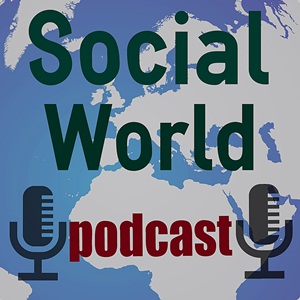This is a great opportunity to listen in to the world of international diplomacy.Christopher served his country for 30 years , having worked for the Department of Foreign Affairs and Trade from 1968-2000. In that time he served in a variety of embassies, at the Australian Permanent Mission to the UN in New York, as the Department’s Legal Adviser and as Ambassador to Myanmar (Burma) from 1986-89 and to Yugoslavia, Romania and Macedonia from 1997-2000. Following that he began a distinguished decade in Geneva with the International Red Cross and Red Crescent Societies.
From an unplanned entry to the Australian diplomatic service, through major postings around the world, Christopher always had a sense of duty to put people first. Having to use lateral and imaginative ways to persuade decision makers and opinion makers to respond to the needs of vulnerable people in so many different and critical settings. In its way, parallel to social work, as it involves the constant resolution of conflict to protect the vulnerable.
From 2000, just before I first met him, he worked as chief diplomat with the International Federation of Red Cross and Red Crescent Societies (IFRC) in Geneva (2000-2010). In Geneva he helped develop IFRC’s policy on Humanitarian Diplomacy. This policy describes the role of humanitarian diplomats as persuading decision-makers and opinion leaders to act, at all times, in the interests of vulnerable people, and with full respect for fundamental humanitarian principles. A significant proportion of his time involved work on the drafting and adoption of a Protocol to the 1949 Geneva Conventions on humanitarian law and its subsequent implementation in Israel and Palestine. His work helped build a new set of relationships between IFRC and governments, inter-governmental organisations, NGOs and many other groups working on common humanitarian questions.
He is now an adviser to IFRC and to the Australian Red Cross as well as several other National Societies, concentrating on the resolution of political questions and the skills required for humanitarian diplomacy. He is also an associate professor in the School of Social and Political Sciences at the University of Melbourne, and is the President of the Australia Myanmar Institute.
He is a graduate of the Australian National University, with degrees in Law and Arts (Political Science), and lives in Melbourne.
Part 2 covering 2000 onwards will be published on 17th August.
My thanks, as always to http://albadigitalmedia.com for technical support to this podcast
Podcast: Play in new window | Download
Subscribe: RSS

